
I was scrolling through my Facebook feed the other day – perusing article headlines and racist family members' complaints about the liberal hellscape in which we reside – when I saw an odd image posted by my local library. A sliver of an iceberg with the words "A Film" by its side barely pierced through the ocean. The submerged portion of the iceberg, labeled with the words "A Book," swam into the deep as an elaborate and seemingly never-ending structure.
The argument is apparent: books are deeper in substance than films. The moment a film adaptation of a novel is conceived, fans of the novel decry in unison, "The movies never get it right! Books will always be better!" Even if book readers are excited to see their favorite characters on the big screen, they still hold prejudiced views about film adaptations at large.

A few explanations have been given to me as to why many people prefer a book to a movie. By virtue of taking more time to engage with, books often seem to be deeper in weight than movies do. Readers also develop very specific visions for what the book should look like. A prose description of a tall white man with flowing, brown curly hair will conjure a different mental iteration in every reader. If a reader's imagining of this character does not look exactly like the actor cast in the role, that can inhibit reader's engagement with the film. Readers want to see their interpretation of the novel, not somebody else's.
I respectfully disagree. Films, despite their brevity, can be just as complex and layered as a six-hundred page opus. Often – especially in recent years with the recent onslaught of dystopian young adult novel adaptations (
The Hunger Games series, the
Divergent series,
The Maze Runner series, to name a few) – films fail to do justice to their source material. Just as often, though, films improve on the novel from which they were birthed. In the internet's favorite listical form, I present triumphs of the cinematic form.
[caption id="attachment_257463" align="alignright" width="300"]

Ben Affleck and Rosamund Pike in "Gone Girl" (2014)[/caption]
David Fincher's Gone Girl (2014)
Based on the novel by Gillian Flynn,
Gone Girl centers on the disappearance of Amy Dunne (Rosamund Pike). As the community gathers together in a hunt for Amy, her husband Nick Dunne (Ben Affleck in his best performance) seems suspiciously unaffected by Amy's absence. He smiles in media interviews and gives conflicting stories to the authorities in an attempt to put on a Midwestern "I'm good! How are you?" face – not an appropriate face in the wake of your wife's missing status. What follows is a mystery seeking to uncover the potential innocence or guilt of Nick Dunne.
Flynn's novel is a very well-crafted thriller. It stands out from the crime stories of James Patterson and his ilk by asking very serious questions, primarily about the media's outsized role in popularizing murder cases. Her writing plows through the story and its many twists in a very slick manner, crafting a smooth web for readers to latch onto. However, Fincher pushes the promise of Flynn's work to its fullest potential by turning the story from a polished mystery to a slimy, pulpy mess. One can only assume Fincher based his color palette on the various types of sediment procured from his cat's litter box; light browns and grays permeate every surface. Affleck and Pike are the two most unfaithful, unreliable protagonists imaginable. No place is clean, and no person is innocent. Fincher takes the slippery nature of the media present in the book and adds it to every component of the film, creating a movie that pushes every character into a trunk of immorality that Flynn only hints at in her novel.
[caption id="attachment_257464" align="alignleft" width="300"]

Alex (Malcolm McDowell) and his droogs in Kubrick's "A Clockwork Orange" (1971)[/caption]
Stanley Kubrick's A Clockwork Orange (1971)
Anthony Burgess's novel of the same name is one of my favorite books. A brisk 200 page read, Burgess – similarly to Flynn's
Gone Girl – writes a story in which the characters are bad but institution are worse. Our humble narrator Alex recounts his lifestyle of gang fights, sexual assault, and murder with utter glee. He soon is arrested for the murder of an old woman and is subjected to a new government brainwashing technique that claims tested individuals will be cure from all evil. Burgess tackles issues of free will: is it better to be evil and autonomous or moral and mindless?
Kubrick's film follows the story essentially verbatim, but pushes it over the edge by creating a definitive artistic style.
A Clockwork Orange's costumes, production design, and cinematography are ingrained in our pop culture lexicon. The bubbly statues and hyper-sexual decorations of the unnamed England town are alluring and alarming. Malcolm McDowell's performance as Alex fits that same bill; McDowell and Kubrick keep Alex at close enough proximity to the audience for us to identify with him but far away enough to keep from implicating us in his deviousness. McDowell embellishes Alex with a wry humor and boyish charm that pull viewers uncomfortably close to full-on sympathy, especially in the face of government experimentation.
The novel's last chapter turns this story into an odd faith tale, quickly redeeming Alex from his previous misdoings. Kubrick nixed this last chapter and ends the film with Alex remaining as impure and hostile as he was in the beginning; the moral grayness of the movie remains unchanged by the film's ending whereas it is washed away by the book's.
[caption id="attachment_257466" align="alignright" width="300"]

Gus (Ansel Elgort) and Hazel (Shailene Woodley), waxing poetic on Chekhov or some crap. Josh Boone's "The Fault In Our Stars" (2014).[/caption]
Josh Boone's The Fault in Our Stars (2014)
In 2014, emotionally closeted frat bros were dragged en masse to the theaters by their girlfriends to see the film adaptation of John Green's explosive teen romance
The Fault In Our Stars. The story follows Hazel (Shailene Woodley) and Gus (Ansel Elgort), two wicked smart teenagers who exchange thinking-man's jokes back and forth as their romance develops. The wrench in their love story is that they are both riddled with cancer. Their health worsens as their romance blooms, and both wonder how much a doomed relationship is worth pursuing.
Despite readers' belief that brevity is the curse of film adaptations, the brevity of the Josh Boone's adaptation is exactly what puts it above the book. Hazel and Gus are exhaustingly pretentious. Gus continually holds an unlit cigarette in his mouth; it's a metaphor, you see, because he has the power to light it and destroy his lungs, but he chooses not to. Imagine spending 300-plus pages dealing with two characters who genuinely think that horseshit is meaningful. It makes me questions why humanity reproduces if such ostentatious children are a possibility. Two hours, on the other hand, is much more manageable, especially since Woodley and Elgort deliver incredibly charming performances that mostly make up for the characters' tiresome #deep meditations on life.
Jonathan Demme's The Silence of the Lambs (1991)
One commonality that the films on the list share so far is the strength of their performers; the actors are able to add dynamism to characters that can often be lost on the page. No film achieves successful characterization more than Jonathan Demme's
The Silence of the Lambs. Clarice Starling (Jodie Foster) is trying to find the serial killer known as Buffalo Bill (Ted Levine). With little assistance from her FBI superiors, Starling looks to famed murderer Hannibal Lecter (Anthony Hopkins) for assistance in solving the case.
[caption id="attachment_257467" align="alignleft" width="383"]

Clarice Starling (Jodie Foster) and Hannibal Lecter (Anthony Hopkins), "The Silence of the Lambs" (1991).[/caption]
Demme's direction is incredible. His shots are claustrophobic, filling the screen with the character's fearful faces or the nauseating corpses found along the way. The main draw of the film, though, is Hopkins's Hannibal Lecter. Even though he is only on screen for ten-ish minutes of the film's two-hour runtime, we think of it as his movie. Lecter is as charismatic as he is repulsive; he paints wondrous portraits as he devours a man's intestines with glee. Foster's performance as Agent Starling, while often overlooked, is equally as compelling. Starling's drive to persevere in an environment that deems women too fickle to solve a murder case carries us through the horror of Buffalo Bill's crimes. Whereas most true crime media today romanticizes murder, Starling forces us to confront the monsters who so flippantly take life. Thomas Harris's novel is unflinching in its portrayal of homicide, but Foster and Hopkins demand that we see them through to the end of this cat-and-mouse journey, however painful it may be.
Honorable Mentions
Peter Jackson's
The Lord of the Rings Trilogy (2001-03): I have never fallen asleep during the movies, and I have never stayed awake for more than twenty pages of Tolkien's
The Fellowship of the Ring.
Stanley Kubrick's
The Shining (1980): The film and novel are so vastly different that it is not truly fair to compare the two. But while we're at it, Stephen King's novel – though it is a thoughtful and chilling rumination on the perils of alcoholism – does not feature a scene where a man in a teddy bear suit is caught in bed with a business person, thus making the novel immediately inferior.
 I was scrolling through my Facebook feed the other day – perusing article headlines and racist family members' complaints about the liberal hellscape in which we reside – when I saw an odd image posted by my local library. A sliver of an iceberg with the words "A Film" by its side barely pierced through the ocean. The submerged portion of the iceberg, labeled with the words "A Book," swam into the deep as an elaborate and seemingly never-ending structure.
The argument is apparent: books are deeper in substance than films. The moment a film adaptation of a novel is conceived, fans of the novel decry in unison, "The movies never get it right! Books will always be better!" Even if book readers are excited to see their favorite characters on the big screen, they still hold prejudiced views about film adaptations at large.
I was scrolling through my Facebook feed the other day – perusing article headlines and racist family members' complaints about the liberal hellscape in which we reside – when I saw an odd image posted by my local library. A sliver of an iceberg with the words "A Film" by its side barely pierced through the ocean. The submerged portion of the iceberg, labeled with the words "A Book," swam into the deep as an elaborate and seemingly never-ending structure.
The argument is apparent: books are deeper in substance than films. The moment a film adaptation of a novel is conceived, fans of the novel decry in unison, "The movies never get it right! Books will always be better!" Even if book readers are excited to see their favorite characters on the big screen, they still hold prejudiced views about film adaptations at large. A few explanations have been given to me as to why many people prefer a book to a movie. By virtue of taking more time to engage with, books often seem to be deeper in weight than movies do. Readers also develop very specific visions for what the book should look like. A prose description of a tall white man with flowing, brown curly hair will conjure a different mental iteration in every reader. If a reader's imagining of this character does not look exactly like the actor cast in the role, that can inhibit reader's engagement with the film. Readers want to see their interpretation of the novel, not somebody else's.
I respectfully disagree. Films, despite their brevity, can be just as complex and layered as a six-hundred page opus. Often – especially in recent years with the recent onslaught of dystopian young adult novel adaptations (The Hunger Games series, the Divergent series, The Maze Runner series, to name a few) – films fail to do justice to their source material. Just as often, though, films improve on the novel from which they were birthed. In the internet's favorite listical form, I present triumphs of the cinematic form.
[caption id="attachment_257463" align="alignright" width="300"]
A few explanations have been given to me as to why many people prefer a book to a movie. By virtue of taking more time to engage with, books often seem to be deeper in weight than movies do. Readers also develop very specific visions for what the book should look like. A prose description of a tall white man with flowing, brown curly hair will conjure a different mental iteration in every reader. If a reader's imagining of this character does not look exactly like the actor cast in the role, that can inhibit reader's engagement with the film. Readers want to see their interpretation of the novel, not somebody else's.
I respectfully disagree. Films, despite their brevity, can be just as complex and layered as a six-hundred page opus. Often – especially in recent years with the recent onslaught of dystopian young adult novel adaptations (The Hunger Games series, the Divergent series, The Maze Runner series, to name a few) – films fail to do justice to their source material. Just as often, though, films improve on the novel from which they were birthed. In the internet's favorite listical form, I present triumphs of the cinematic form.
[caption id="attachment_257463" align="alignright" width="300"] Ben Affleck and Rosamund Pike in "Gone Girl" (2014)[/caption]
David Fincher's Gone Girl (2014)
Based on the novel by Gillian Flynn, Gone Girl centers on the disappearance of Amy Dunne (Rosamund Pike). As the community gathers together in a hunt for Amy, her husband Nick Dunne (Ben Affleck in his best performance) seems suspiciously unaffected by Amy's absence. He smiles in media interviews and gives conflicting stories to the authorities in an attempt to put on a Midwestern "I'm good! How are you?" face – not an appropriate face in the wake of your wife's missing status. What follows is a mystery seeking to uncover the potential innocence or guilt of Nick Dunne.
Flynn's novel is a very well-crafted thriller. It stands out from the crime stories of James Patterson and his ilk by asking very serious questions, primarily about the media's outsized role in popularizing murder cases. Her writing plows through the story and its many twists in a very slick manner, crafting a smooth web for readers to latch onto. However, Fincher pushes the promise of Flynn's work to its fullest potential by turning the story from a polished mystery to a slimy, pulpy mess. One can only assume Fincher based his color palette on the various types of sediment procured from his cat's litter box; light browns and grays permeate every surface. Affleck and Pike are the two most unfaithful, unreliable protagonists imaginable. No place is clean, and no person is innocent. Fincher takes the slippery nature of the media present in the book and adds it to every component of the film, creating a movie that pushes every character into a trunk of immorality that Flynn only hints at in her novel.
[caption id="attachment_257464" align="alignleft" width="300"]
Ben Affleck and Rosamund Pike in "Gone Girl" (2014)[/caption]
David Fincher's Gone Girl (2014)
Based on the novel by Gillian Flynn, Gone Girl centers on the disappearance of Amy Dunne (Rosamund Pike). As the community gathers together in a hunt for Amy, her husband Nick Dunne (Ben Affleck in his best performance) seems suspiciously unaffected by Amy's absence. He smiles in media interviews and gives conflicting stories to the authorities in an attempt to put on a Midwestern "I'm good! How are you?" face – not an appropriate face in the wake of your wife's missing status. What follows is a mystery seeking to uncover the potential innocence or guilt of Nick Dunne.
Flynn's novel is a very well-crafted thriller. It stands out from the crime stories of James Patterson and his ilk by asking very serious questions, primarily about the media's outsized role in popularizing murder cases. Her writing plows through the story and its many twists in a very slick manner, crafting a smooth web for readers to latch onto. However, Fincher pushes the promise of Flynn's work to its fullest potential by turning the story from a polished mystery to a slimy, pulpy mess. One can only assume Fincher based his color palette on the various types of sediment procured from his cat's litter box; light browns and grays permeate every surface. Affleck and Pike are the two most unfaithful, unreliable protagonists imaginable. No place is clean, and no person is innocent. Fincher takes the slippery nature of the media present in the book and adds it to every component of the film, creating a movie that pushes every character into a trunk of immorality that Flynn only hints at in her novel.
[caption id="attachment_257464" align="alignleft" width="300"] Alex (Malcolm McDowell) and his droogs in Kubrick's "A Clockwork Orange" (1971)[/caption]
Stanley Kubrick's A Clockwork Orange (1971)
Anthony Burgess's novel of the same name is one of my favorite books. A brisk 200 page read, Burgess – similarly to Flynn's Gone Girl – writes a story in which the characters are bad but institution are worse. Our humble narrator Alex recounts his lifestyle of gang fights, sexual assault, and murder with utter glee. He soon is arrested for the murder of an old woman and is subjected to a new government brainwashing technique that claims tested individuals will be cure from all evil. Burgess tackles issues of free will: is it better to be evil and autonomous or moral and mindless?
Kubrick's film follows the story essentially verbatim, but pushes it over the edge by creating a definitive artistic style. A Clockwork Orange's costumes, production design, and cinematography are ingrained in our pop culture lexicon. The bubbly statues and hyper-sexual decorations of the unnamed England town are alluring and alarming. Malcolm McDowell's performance as Alex fits that same bill; McDowell and Kubrick keep Alex at close enough proximity to the audience for us to identify with him but far away enough to keep from implicating us in his deviousness. McDowell embellishes Alex with a wry humor and boyish charm that pull viewers uncomfortably close to full-on sympathy, especially in the face of government experimentation.
The novel's last chapter turns this story into an odd faith tale, quickly redeeming Alex from his previous misdoings. Kubrick nixed this last chapter and ends the film with Alex remaining as impure and hostile as he was in the beginning; the moral grayness of the movie remains unchanged by the film's ending whereas it is washed away by the book's.
[caption id="attachment_257466" align="alignright" width="300"]
Alex (Malcolm McDowell) and his droogs in Kubrick's "A Clockwork Orange" (1971)[/caption]
Stanley Kubrick's A Clockwork Orange (1971)
Anthony Burgess's novel of the same name is one of my favorite books. A brisk 200 page read, Burgess – similarly to Flynn's Gone Girl – writes a story in which the characters are bad but institution are worse. Our humble narrator Alex recounts his lifestyle of gang fights, sexual assault, and murder with utter glee. He soon is arrested for the murder of an old woman and is subjected to a new government brainwashing technique that claims tested individuals will be cure from all evil. Burgess tackles issues of free will: is it better to be evil and autonomous or moral and mindless?
Kubrick's film follows the story essentially verbatim, but pushes it over the edge by creating a definitive artistic style. A Clockwork Orange's costumes, production design, and cinematography are ingrained in our pop culture lexicon. The bubbly statues and hyper-sexual decorations of the unnamed England town are alluring and alarming. Malcolm McDowell's performance as Alex fits that same bill; McDowell and Kubrick keep Alex at close enough proximity to the audience for us to identify with him but far away enough to keep from implicating us in his deviousness. McDowell embellishes Alex with a wry humor and boyish charm that pull viewers uncomfortably close to full-on sympathy, especially in the face of government experimentation.
The novel's last chapter turns this story into an odd faith tale, quickly redeeming Alex from his previous misdoings. Kubrick nixed this last chapter and ends the film with Alex remaining as impure and hostile as he was in the beginning; the moral grayness of the movie remains unchanged by the film's ending whereas it is washed away by the book's.
[caption id="attachment_257466" align="alignright" width="300"] Gus (Ansel Elgort) and Hazel (Shailene Woodley), waxing poetic on Chekhov or some crap. Josh Boone's "The Fault In Our Stars" (2014).[/caption]
Josh Boone's The Fault in Our Stars (2014)
In 2014, emotionally closeted frat bros were dragged en masse to the theaters by their girlfriends to see the film adaptation of John Green's explosive teen romance The Fault In Our Stars. The story follows Hazel (Shailene Woodley) and Gus (Ansel Elgort), two wicked smart teenagers who exchange thinking-man's jokes back and forth as their romance develops. The wrench in their love story is that they are both riddled with cancer. Their health worsens as their romance blooms, and both wonder how much a doomed relationship is worth pursuing.
Despite readers' belief that brevity is the curse of film adaptations, the brevity of the Josh Boone's adaptation is exactly what puts it above the book. Hazel and Gus are exhaustingly pretentious. Gus continually holds an unlit cigarette in his mouth; it's a metaphor, you see, because he has the power to light it and destroy his lungs, but he chooses not to. Imagine spending 300-plus pages dealing with two characters who genuinely think that horseshit is meaningful. It makes me questions why humanity reproduces if such ostentatious children are a possibility. Two hours, on the other hand, is much more manageable, especially since Woodley and Elgort deliver incredibly charming performances that mostly make up for the characters' tiresome #deep meditations on life.
Jonathan Demme's The Silence of the Lambs (1991)
One commonality that the films on the list share so far is the strength of their performers; the actors are able to add dynamism to characters that can often be lost on the page. No film achieves successful characterization more than Jonathan Demme's The Silence of the Lambs. Clarice Starling (Jodie Foster) is trying to find the serial killer known as Buffalo Bill (Ted Levine). With little assistance from her FBI superiors, Starling looks to famed murderer Hannibal Lecter (Anthony Hopkins) for assistance in solving the case.
[caption id="attachment_257467" align="alignleft" width="383"]
Gus (Ansel Elgort) and Hazel (Shailene Woodley), waxing poetic on Chekhov or some crap. Josh Boone's "The Fault In Our Stars" (2014).[/caption]
Josh Boone's The Fault in Our Stars (2014)
In 2014, emotionally closeted frat bros were dragged en masse to the theaters by their girlfriends to see the film adaptation of John Green's explosive teen romance The Fault In Our Stars. The story follows Hazel (Shailene Woodley) and Gus (Ansel Elgort), two wicked smart teenagers who exchange thinking-man's jokes back and forth as their romance develops. The wrench in their love story is that they are both riddled with cancer. Their health worsens as their romance blooms, and both wonder how much a doomed relationship is worth pursuing.
Despite readers' belief that brevity is the curse of film adaptations, the brevity of the Josh Boone's adaptation is exactly what puts it above the book. Hazel and Gus are exhaustingly pretentious. Gus continually holds an unlit cigarette in his mouth; it's a metaphor, you see, because he has the power to light it and destroy his lungs, but he chooses not to. Imagine spending 300-plus pages dealing with two characters who genuinely think that horseshit is meaningful. It makes me questions why humanity reproduces if such ostentatious children are a possibility. Two hours, on the other hand, is much more manageable, especially since Woodley and Elgort deliver incredibly charming performances that mostly make up for the characters' tiresome #deep meditations on life.
Jonathan Demme's The Silence of the Lambs (1991)
One commonality that the films on the list share so far is the strength of their performers; the actors are able to add dynamism to characters that can often be lost on the page. No film achieves successful characterization more than Jonathan Demme's The Silence of the Lambs. Clarice Starling (Jodie Foster) is trying to find the serial killer known as Buffalo Bill (Ted Levine). With little assistance from her FBI superiors, Starling looks to famed murderer Hannibal Lecter (Anthony Hopkins) for assistance in solving the case.
[caption id="attachment_257467" align="alignleft" width="383"] Clarice Starling (Jodie Foster) and Hannibal Lecter (Anthony Hopkins), "The Silence of the Lambs" (1991).[/caption]
Demme's direction is incredible. His shots are claustrophobic, filling the screen with the character's fearful faces or the nauseating corpses found along the way. The main draw of the film, though, is Hopkins's Hannibal Lecter. Even though he is only on screen for ten-ish minutes of the film's two-hour runtime, we think of it as his movie. Lecter is as charismatic as he is repulsive; he paints wondrous portraits as he devours a man's intestines with glee. Foster's performance as Agent Starling, while often overlooked, is equally as compelling. Starling's drive to persevere in an environment that deems women too fickle to solve a murder case carries us through the horror of Buffalo Bill's crimes. Whereas most true crime media today romanticizes murder, Starling forces us to confront the monsters who so flippantly take life. Thomas Harris's novel is unflinching in its portrayal of homicide, but Foster and Hopkins demand that we see them through to the end of this cat-and-mouse journey, however painful it may be.
Honorable Mentions
Peter Jackson's The Lord of the Rings Trilogy (2001-03): I have never fallen asleep during the movies, and I have never stayed awake for more than twenty pages of Tolkien's The Fellowship of the Ring.
Stanley Kubrick's The Shining (1980): The film and novel are so vastly different that it is not truly fair to compare the two. But while we're at it, Stephen King's novel – though it is a thoughtful and chilling rumination on the perils of alcoholism – does not feature a scene where a man in a teddy bear suit is caught in bed with a business person, thus making the novel immediately inferior.
Clarice Starling (Jodie Foster) and Hannibal Lecter (Anthony Hopkins), "The Silence of the Lambs" (1991).[/caption]
Demme's direction is incredible. His shots are claustrophobic, filling the screen with the character's fearful faces or the nauseating corpses found along the way. The main draw of the film, though, is Hopkins's Hannibal Lecter. Even though he is only on screen for ten-ish minutes of the film's two-hour runtime, we think of it as his movie. Lecter is as charismatic as he is repulsive; he paints wondrous portraits as he devours a man's intestines with glee. Foster's performance as Agent Starling, while often overlooked, is equally as compelling. Starling's drive to persevere in an environment that deems women too fickle to solve a murder case carries us through the horror of Buffalo Bill's crimes. Whereas most true crime media today romanticizes murder, Starling forces us to confront the monsters who so flippantly take life. Thomas Harris's novel is unflinching in its portrayal of homicide, but Foster and Hopkins demand that we see them through to the end of this cat-and-mouse journey, however painful it may be.
Honorable Mentions
Peter Jackson's The Lord of the Rings Trilogy (2001-03): I have never fallen asleep during the movies, and I have never stayed awake for more than twenty pages of Tolkien's The Fellowship of the Ring.
Stanley Kubrick's The Shining (1980): The film and novel are so vastly different that it is not truly fair to compare the two. But while we're at it, Stephen King's novel – though it is a thoughtful and chilling rumination on the perils of alcoholism – does not feature a scene where a man in a teddy bear suit is caught in bed with a business person, thus making the novel immediately inferior.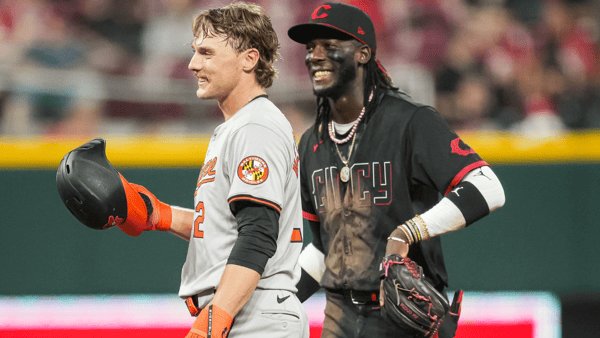
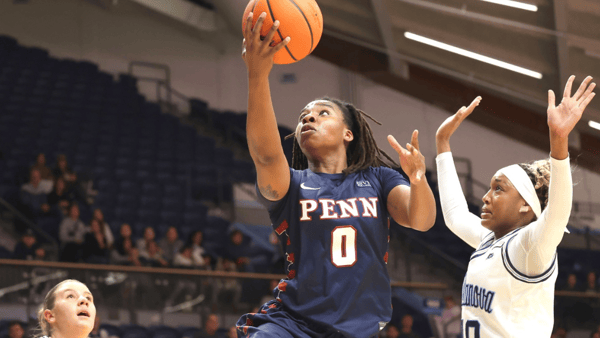
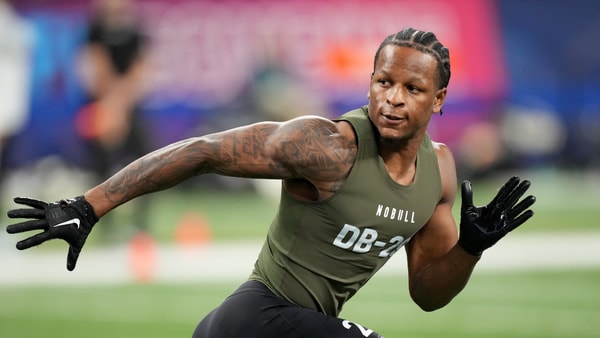
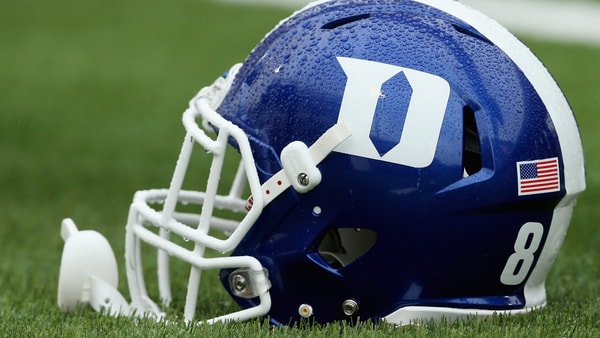
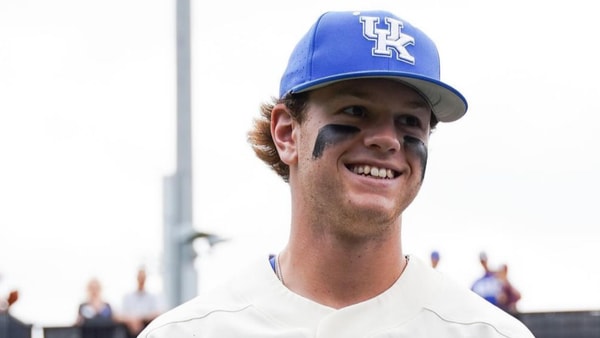
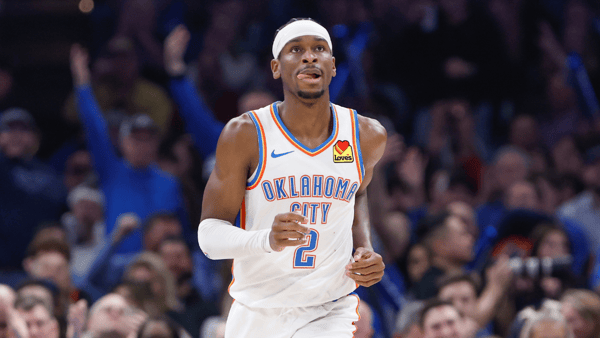
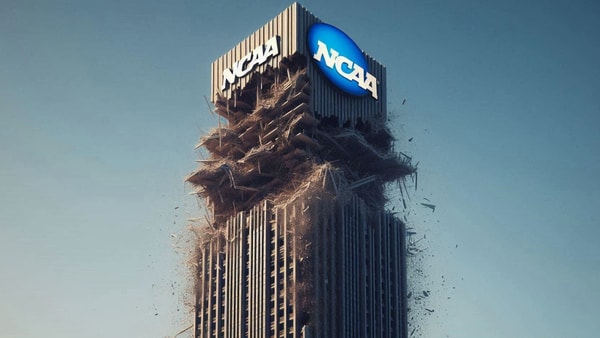
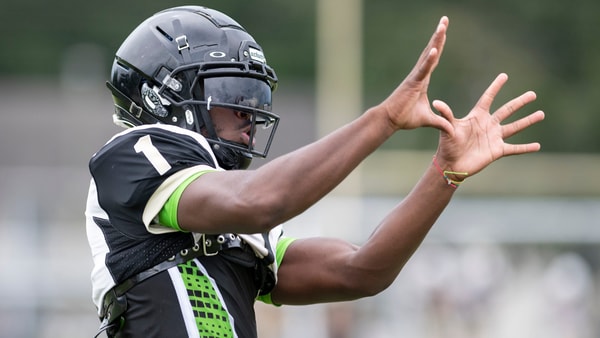
Discuss This Article
Comments have moved.
Join the conversation and talk about this article and all things Kentucky Sports in the new KSR Message Board.
KSBoard